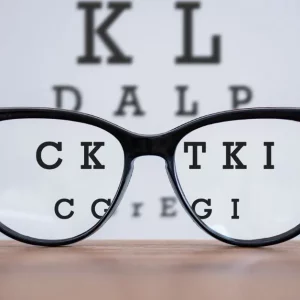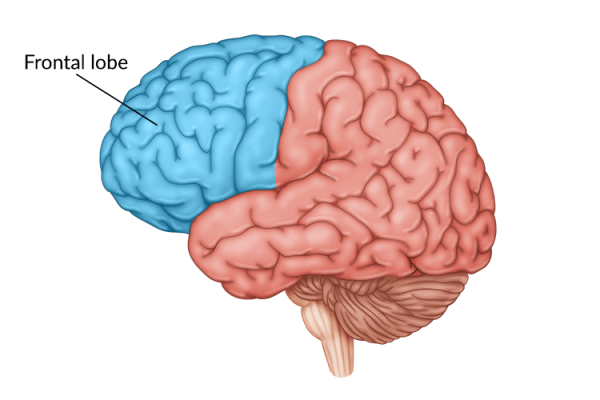Pituitary dysfunction after traumatic brain injury can cause a wide range of problems.
These issues can mimic the issues after a brain injury, making it difficult for doctors to determine the true cause of your symptoms. This is important, because pituitary problems require a completely different treatment.
However, problems arising from the pituitary gland are hard to detect. That’s why today’s article will explain the symptoms, causes, and treatments of pituitary dysfunction after brain injury.
What Does the Pituitary Gland Do?
The pituitary gland is a small gland attached to the bottom of the hypothalamus. These two glands work together to keep the body’s hormones balanced. In fact, neither one can work properly without the other.
The pituitary sits near the base of the skull, behind the bridge of the nose. Doctors call it the “master gland” because the hormones it releases control nearly every process in the body.
For example, if the body lacks adrenaline, the pituitary will release hormones that stimulate the adrenal glands. This triggers the adrenal glands to produce cortisol and adrenaline.
Without the pituitary gland then, the rest of the hormones in the body will malfunction. That explains why pituitary damage can cause such a wide range of problems.
How Common Is Pituitary Dysfunction After Traumatic Brain Injury?
While most doctors in the past believed pituitary dysfunction after TBI was rare, recent studies have challenged that claim.
For example, one comprehensive study found that over 27% of patients experienced pituitary problems. That number was even higher for severe brain injury patients.
Indeed, some studies estimate that around 56% of traumatic brain injury survivors will develop some type of pituitary dysfunction.
However, the symptoms of pituitary damage are sometimes subtle. In fact, they often resemble secondary effects of brain injury, which makes them easy to miss. We’ll look at some common symptoms next.
Symptoms of Pituitary Damage
Many of the symptoms of pituitary damage mimic impairments that arise after traumatic brain injury. These include:
- Memory and concentration problems
- Headaches
- Muscle weakness
- Insomnia
- Fatigue
- Depression and anxiety
- Mood swings
In addition, it sometimes takes months for pituitary problems to develop after TBI. This makes it even easier to overlook during treatment.
There are, however, some specific symptoms and conditions that could indicate pituitary dysfunction. These will vary according to which hormone the pituitary gland is not producing enough of.
Below are a few common symptoms of pituitary dysfunction after traumatic brain injury:
Growth Hormone Deficiency

One of the most important hormones the pituitary makes is growth hormone. But if the pituitary gland stops producing growth hormone, several problems can occur.
In fact, growth hormone deficiency is the most common deficiency in patients after a TBI. It is especially common in persons with moderate to severe brain injuries.
Symptoms of growth hormone deficiency include many issues such as:
- Rapid weight gain
- Low levels of other hormones
- Poor physical health
- Anxiety and depression
- Problems with attention, memory, executive function, and emotions
Growth hormone regulates body growth in children, but it also plays a critical role in adulthood.
For example, growth hormone receptors are found in brain regions associated with learning and memory. This may explain why low growth hormone levels can contribute to cognitive problems.
Hypothyroidism
The thyroid is a butterfly-shaped gland on the front of your neck. It produces several hormones that are critical for functions such as metabolism, growth, body temperature, and several others.
If the thyroid does not receive stimulation from the pituitary gland, however, it cannot produce these crucial hormones. This leads to hypothyroidism, which can cause the following problems:
- Concentration and memory problems
- Unexplained weight gain
- Dry skin
- Extreme fatigue
- Depression
- Constipation
- Infertility and/or irregular periods
Fortunately, hypothyroidism can be effectively treated with hormone replacement therapy.
Secondary Adrenal Insufficiency

The pituitary gland normally makes a hormone called adrenocorticotrophic hormone (ACTH). This hormone triggers the production of cortisol in the adrenal glands.
If pituitary damage lowers the production of ACTH, the adrenal glands can no longer produce cortisol. This can lead to adrenal insufficiency, which causes problems such as joint pain, low blood pressure, and dizziness.
In addition, prolonged adrenal insufficiency can trigger an adrenal crisis. This is a medical emergency that requires an immediate shot of glucocorticoids.
Signs of an adrenal crisis include:
- Sudden pain in back, abdomen, or legs
- Severe nausea and vomiting
- Confusion
- Low blood pressure and fainting
People in an adrenal crisis should go to the hospital for further treatment. Make sure you always wear a medical alert bracelet and tell friends what to do should a crisis occur.
Diabetes Insipidus
Finally, if the pituitary does not produce enough antidiuretic hormone, the kidneys will not retain enough water. This leads to a condition called diabetes insipidus.
Symptoms of diabetes insipidus include:
- Frequent urination
- Extreme thirst
- Clear, diluted urine
Despite the name, diabetes insipidus is not related to other types of diabetes. With those types, the body cannot process glucose. People with diabetes insipidus, on the other hand, can tolerate glucose fine, they just can’t retain enough water.
Diagnosing and Treating Pituitary Dysfunction After Traumatic Brain Injury

The best way to diagnose pituitary dysfunction is through a blood test. The blood test will check the levels of the hormones that your pituitary gland releases. It can also check the hormones that your pituitary stimulates other glands to produce.
For example, your doctor might check your T4 levels after brain injury. Even though the pituitary doesn’t directly produce this hormone, your thyroid does. And your thyroid cannot function unless the pituitary stimulates it. Therefore, low levels of T4 can indicate pituitary damage.
Once your doctors discover which hormones you are low on, they may start you on hormone replacement therapy. This therapy helps bring all your missing hormones back to their normal levels.
Sometimes the pituitary will heal itself after brain injury, and patients will only require hormone replacement for a few months. Some, however, will need to use it for the rest of their life.
Pituitary Damage After Brain Injury: Conclusion
Pituitary dysfunction after traumatic brain injury can be hard to recognize at first. But it can cause serious effects if left untreated.
Unfortunately, unlike other types of brain injury, you cannot treat pituitary problems by rewiring the brain. Rather, you must replace the hormones that the pituitary no longer makes.
Therefore, if your symptoms are not improving after a TBI, ask your doctor to check your hormone levels. It is possible that your problems are exacerbated by a pituitary dysfunction.
The sooner you can get your hormones back to normal, the more energy you will have to complete your recovery.










